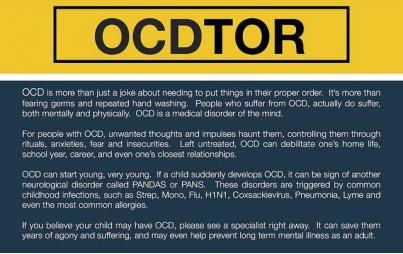
Having a compulsive need to workout is a struggle to overcome.
Content Warning: Excessive exercise, calorie counting, disordered eating
I’m exhausted, and listening to my body is never easy. But, I’m exhausted. I’m working full time, taking classes, training for a half marathon, and attempting to also allow myself some down time to practice self-care and reflect. That’s a lot!
Amidst the busyness, and for some time now, compulsive exercise has been a "thing" for me. I mean track every mile, feel guilty when I don’t work out, only eat so I can fuel a workout kind of compulsive exercise. I think about my workout and fret about not fitting it in from the minute I wake up until I am leaving the gym after work. I am a self-identified "gym junkie." (My therapist has a different word for that.)
Some days I work out for my mental health, to relieve stress, and to feel strong; other days, my reasons for going to the gym are less mature and healthy. However, like most typical twenty-somethings who are trying to be flexible and spontaneous, life got busy. At one point, I wasn't able to work out for multiple days in a row - I’m talking four days, max.
In my completely made up rules for life, that's a "no-no." So this threw me into a total tizzy. My friends called me out because I was obsessed with the fact that I couldn’t work out. It was all I could talk about. I sort of panicked.
In my completely made up rules for life, there are consequences for skipping the gym. These consequences are things that will definitely happen if I don’t work out. These consequences are irrational, and probably will never actually happen.
So, I didn’t work out for a few days in a row, and despite my fears the following things didn’t happen:
I didn't gain 10 pounds overnight.
I’m not alone on this one. Many of us with eating disorders fear that the consequences of our lapse in self-control will always be immediate and severe. We cannot always articulate the consequences, but they’re guilt-ridden, and only propel our disorders’ control over us.
Remember, eating disorders are not rational.
I’m here to tell you, it’s nearly impossible to gain 10 real pounds overnight. Yeah sure, you may retain water. If you get your period, you might gain some weight during that time of the month, or you may just need to use the bathroom. But, not working out for a few days won’t make you gain weight right away (and even if you do gain weight, that’s fine too!). Also, you don’t need to compensate with less food to make up for not working out. Calories are important for more reasons than how quickly you can burn them each day — like living. Just saying.
I didn't lose all my strength and motivation.
I often imagine my exercise routine as if it is the momentum created by a boulder rolling down a hill. Some days, I’m attempting to outrun the boulder so it doesn’t squish me, and other days, I am the boulder — unstoppable until I come to a screeching halt. I was afraid that if I missed some days of my workout schedule I’d never be able to start again. I feared I’d lose all my strength and motivation. Just like that — poof! — it would be gone. I feared I would forget how to run, how to lift weights, or how to use my body completely. Seriously, I thought I was going to melt into a puddle of nothing, or a become a Raggedy Ann Doll.
Well, that didn’t happen. In fact, taking some days off made me stronger and more motivated to get back in the gym! After not running for four days, I ran faster and farther than I had in over two months. I actually wanted to go to the gym, instead of feeling compelled to go work out. And I had enough energy to get through my entire plan!
The anxiety, while challenging, wasn't unbearable.
I was really, really anxious when I couldn’t stick to my gym regimen. Working out was all I could talk about. I was fixated on not being able to get to the gym. I was irritated and overwhelmed. I also felt guilty. I was feeling all of those feelings that make you want to scream at your brain to just shut up!
Except, in hindsight, it wasn’t that unbearable. When I was out and about, it was actually nice to be set free from the chains of dreaded treadmill workouts and protein shakes. I was anxious, but I filled my time with other types of intellectual and emotional stimulation. I saw friends, I took a class, I went to some amazing lectures, I watched Grey’s Anatomy. And, I was anxious, yes. But it wasn’t intolerable.
Here’s the thing, while nothing horrible happened when I skipped a few days of working out, the compulsion to work out and the compensatory behaviors with food didn't go away immediately. I think about food and exercise nearly all day, every day — and it’s exhausting! In fact, as I’m writing this, I’m doing some incredibly complex mental gymnastics to calculate how much damage I’m going to do if I don’t work out tonight, since I just ate two unmeasured bowls of steamed spinach, brown rice, organic blue corn chips, and black beans with a dollop of guacamole.
Yes. That’s real. And no, I’m not proud of this contemplation.
While I can rationally acknowledge that nothing bad will happen when I skip the gym, and I have evidence to prove it, my compulsion and desire for control (manifested as excessive exercise and disordered eating) is irrational.
Living with OCD and overcoming compulsions or obsessions is not a linear process. I’ve had several bouts of compulsions in my life, and even if I’ve resolved one, it’s likely another will reveal itself or I’ll relapse. Likewise, disordered behaviors around food and exercise are inherently not rational. Recognizing these behaviors is a start, but the work to move from acknowledgement to action and change has only just begun!







